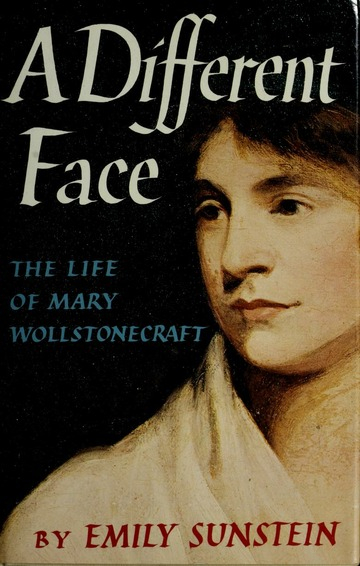Synopsis
For her biography's title Emily Sunstein borrows from “Mary” (1801–3), a poem written by William Blake, which she also uses to introduce chapter 1. The first stanza of Blake's poem clearly alludes to the perception that many had of Wollstonecraft after they read Godwin's Memoirs. The second stanza contains the phrase in Sunstein's title:
Published in 1975, Sunstein's biography is driven by this poem's representation of how some people viewed Wollstonecraft as “whore” and “different.” Sunstein reintroduces Wollstonecraft as the nearly perfect icon for the women's liberation movement of the 1970s, a woman who was sexually free of social restraints and who was unconventional and walking to the beat of her own drum.
Britain and the United States were greatly impacted by the anti establishment decade of the 1960s, with its revolt against social conventions and institutions. Rhinestone Cowboy and Poetry Man, Boogie on Reggae Woman and Lady Marmalade, You're No Good and Mandy were some of the billboard hits of 1975; the titles themselves, their subject matter, their unique rhythms all testified that the West had finally realized its diversity, and a “love- in” generation celebrated it. In 1971 Canada made multiculturalism its official national policy, followed by Australia. In the United States in the 1970s the New Left adopted the term “political correctness,” Edward W. Saïd published Orientalism in 1978, and the world was ready to lionize the woman from the eighteenth century who dared to be different. Sunstein prioritizes this aspect of Wollstonecraft.
Published in 1975, Sunstein's biography is driven by this poem's representation of how some people viewed Wollstonecraft as “whore” and “different.” Sunstein reintroduces Wollstonecraft as the nearly perfect icon for the women's liberation movement of the 1970s, a woman who was sexually free of social restraints and who was unconventional and walking to the beat of her own drum.
Britain and the United States were greatly impacted by the anti establishment decade of the 1960s, with its revolt against social conventions and institutions. Rhinestone Cowboy and Poetry Man, Boogie on Reggae Woman and Lady Marmalade, You're No Good and Mandy were some of the billboard hits of 1975; the titles themselves, their subject matter, their unique rhythms all testified that the West had finally realized its diversity, and a “love- in” generation celebrated it. In 1971 Canada made multiculturalism its official national policy, followed by Australia. In the United States in the 1970s the New Left adopted the term “political correctness,” Edward W. Saïd published Orientalism in 1978, and the world was ready to lionize the woman from the eighteenth century who dared to be different. Sunstein prioritizes this aspect of Wollstonecraft.
Titre original : A Different Face: The Life of Mary Wollstonecraft (1975)
Moyenne
-
0 vote
-
1 édition pour ce livre
1975 Editions HarperCollins
384 pages
1er juin 1975
ISBN : 9780060142018
Qui a lu ce livre ?
1 membre a lu ce livre
Aucun membre ne lit ce livre
Aucun membre ne veut lire ce livre
Aucun membre ne possède ce livre
chronique de blog
Aucune chronique de blog pour le moment.
En vous inscrivant à Livraddict, vous pourrez partager vos chroniques de blog !



Pour poster un message, il faut être inscrit sur Livraddict
Aucun commentaire pour le moment.